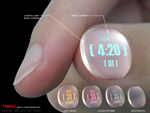I’m trying a couple of experiments with my blog. One is a feed of sorts that shows recently updated blogs. I’m conducting a trial with a few blogs I read, on the right-side tab “Recently updated blogs”. The last 3 posts of the blogs updated within 3 days one-and-half days show up here (using their RSS feed).
The other is creating an online catalog of digital resources I’ve encountered. Right now, I’ve put in books (fiction) I’ve read soft copies of on the right side tab “My fiction collection”. I’m planning to add non-fiction, music and movies.
The good part about having digital books, of course, is being able to lend them without worrying about losing my copy.
